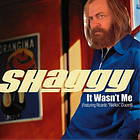Devs and the Culture of Tech - Part 3
Consequences: Not something we desire, just something we observe
In the previous part of this series we looked at how Forest’s one-world deterministic model was a simplification of reality’s actual complexity represented by the many-worlds model. One way to look at Forest’s obsession with the wholly deterministic model was as emblematic of tech’s need to abstract and simplify the world. This often involves excluding complex, messy and difficult social and political factors in a way that does not evade politics, but simply designates the narrow worldview of the designers as an “objective” apolitical default and hides it.
This claim to the apolitical is also about recognising, or failing to recognise, the agency behind and responsibility for new technologies. Forest’s dedication to the one-world deterministic model of reality is not just about his need to simplify reality to a technically solvable problem, but also to a great deal by his own personal need to abdicate responsibility for the costs that his actions bring to others.
An Objectively Acceptable Cost
If we go back to that first scene where Forest lectures Sergei on determinism we can see that Forest is responsible for the planning and execution of a murder. He makes peace with this through his deterministic perspective. He and Sergei are on tramlines, placed in that position because of the circumstances that lead up to it. In this moment forest is adopting a hard determinist perspective that these things are outside of his control.
Yet the consequences of claiming to be disempowered by determinism differ for Forest and for Sergei. For Sergei, Forest’s claims are a tacit statement that Sergei must accept the harm about to come to him, whilst for Forest it is an absolution for instigating that harm and benefitting from it.
Technological determinism, whilst positioning technology as the ultimate driver of human change, with all humans powerless to resist it, still somehow has certain groups that are more likely to benefit from, and align with that change than others.
Tech culture loves ‘disruption’. Every new project for a while was justified on the basis of disruption itself. Even now claiming that a startup is ‘the Uber of…’ is a shorthand for disruption as it has so successfully ‘disrupted’ the taxi industry. The ostensible motivation behind disruption is progress - to introduce a layer of digital technology into every facet of human affairs is, due to technological determinism, conflated with progress itself.
Bringing about new technologies is understood as intrinsically beneficial because it is the realisation of progress. Negative effects of new technology, of disruption can be chalked up as the cost of progress. Even if this technology in front of us is screwing things up, it is simply a stepping stone on the way to the next technology that may build utopia. A hard determinist doesn’t even need such justifications - technology will happen regardless.
Disruption is a Coup

In one scene, when shown the consequences of Forest’s actions - namely Jamie’s hand that has been broken during torture by Forest’s chief of security - Forest says that these things are just something he “observes” rather than “desires”. It is happening around him, for his benefit, at his instigation, but not because of him. If there are negative consequences for some people due to technological disruption they are an objective and necessary cost. Just because tech culture’s disruption happened at their instigation, and to their benefit, we cannot shoot the messenger of progress because the consequences they’ve brought is not something they desire, just something they observe.
Yet as we’ve already seen, the claims of being apolitical simply means they do not acknowledge their own politics and motivations. Disruption is often paired with the concept of ‘democratising’, of undermining existing social and/or institutional power structures to open up access to something. Cryptocurrency is sold as a democratisation of finance, an undermining of existing regulatory and institutional banking structures. Web 2.0 was meant to be a disruption of media gatekeeping, the ‘democratisation’ of content production and publishing. However ‘democratisation’ focuses on the pulling down of gatekeepers and intermediaries, without acknowledging that instead they are simply replacing them with different intermediaries.
A great example of this is the media piracy heyday of the early 2000s. Napster, Limewire etc was politicised as a taking down of long-standing music industry cartels. What was less acknowledged was that digital piracy, and its eventual solutions offered by computing companies like Apple, replaced one set of intermediaries with another from tech. Whilst digital piracy claimed a political mission against the exploitation of artists, and it is undeniable that artists were exploited under that model, today artists struggle even more as recorded music has all but been eliminated as a viable income stream. - if you want to know more I wrote a book about this back in 2013 which you can read for free over on the Internet Archive.
Disruption is an idea that has a lot of currency in silicon valley, precisely because it does a lot of work legitimating tech culture behaviour. It plays on the idea that fundamentally upsetting existing social structures is intrinsically good whilst deflecting attention from what replaces those structures. Often it is not even a case of replacement, but simply an opening up of a window to insert additional middle-men in the form of tech1. Disruption hides the unequal distribution of benefits and consequences and frames it as an inevitability, a predetermined outcome. Disruption is a coup calling itself a revolution.
Crucially ‘disruption’ depersonalises the kinds of interventions being made in these spaces. ChatGPT is introducing critical new complications to human life because a few people decided to pursue it in a particular way, with particular politics and particular motivations. Disruption is a highly personal and political process. In the next entry of this series I will look at how Devs illustrates this deeply personal drivers behind technology that has wide reaching consequences for others.
Tim Jordan calls this process Disintermediation and Reintermediation. In short, the removal of some intermediaries that sit between a service provider and its recipient, and then the replacement of those intermediaries for different ones. Disruption as a concept focuses our attention on the removal, but obscures the replacement.
Jordan, T. (2020). The digital economy. Polity.



